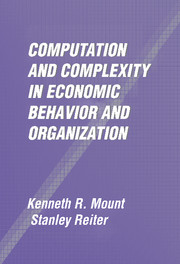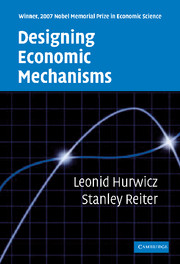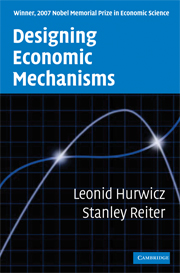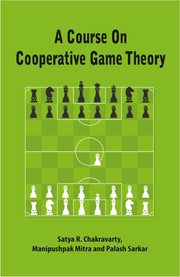Computation and Complexity in Economic Behavior and Organization
This book presents a model of computing and a measure of computational complexity which are intended to facilitate analysis of computations performed by people, machines, or a mixed system of people and machines. The model is designed to apply directly to models of economic theory, which typically involve continuous variables and smooth functions, without requiring analysis of approximations. The model permits analysis of the feasibility and complexity of the calculations required of economic agents in order for them to arrive at their decisions. The treatment contains applications of the model to game theory and economics, including comparison of the complexities of different solution concepts in certain bargaining games, and the trade-off between communication and computation in an example of an Edgeworth Box economy.
- A sophisticated computational presentation of the cost of rational behaviour of individuals and firms
- Students only need one year of multivariable calculus to use the book
- Authors are an internationally celebrated mathematician and mathematical economist, respectively
Reviews & endorsements
'… the authors present frontier research methods on the important economics of 'mechanism design …' Asia Pacific Journal of Management
Product details
June 2002Hardback
9780521800563
248 pages
229 × 152 × 17 mm
0.52kg
51 b/w illus. 7 tables
Available
Table of Contents
- Acknowledgements
- 1. Introduction
- 2. F networks
- 3. Networks of real-valued functions
- 4. Applications to economics
- 5. Applications to games
- 6. Lower bounds and approximations
- 7. Organizations
- Appendices
- Bibliography
- Index.





